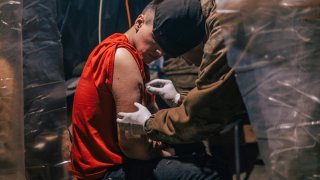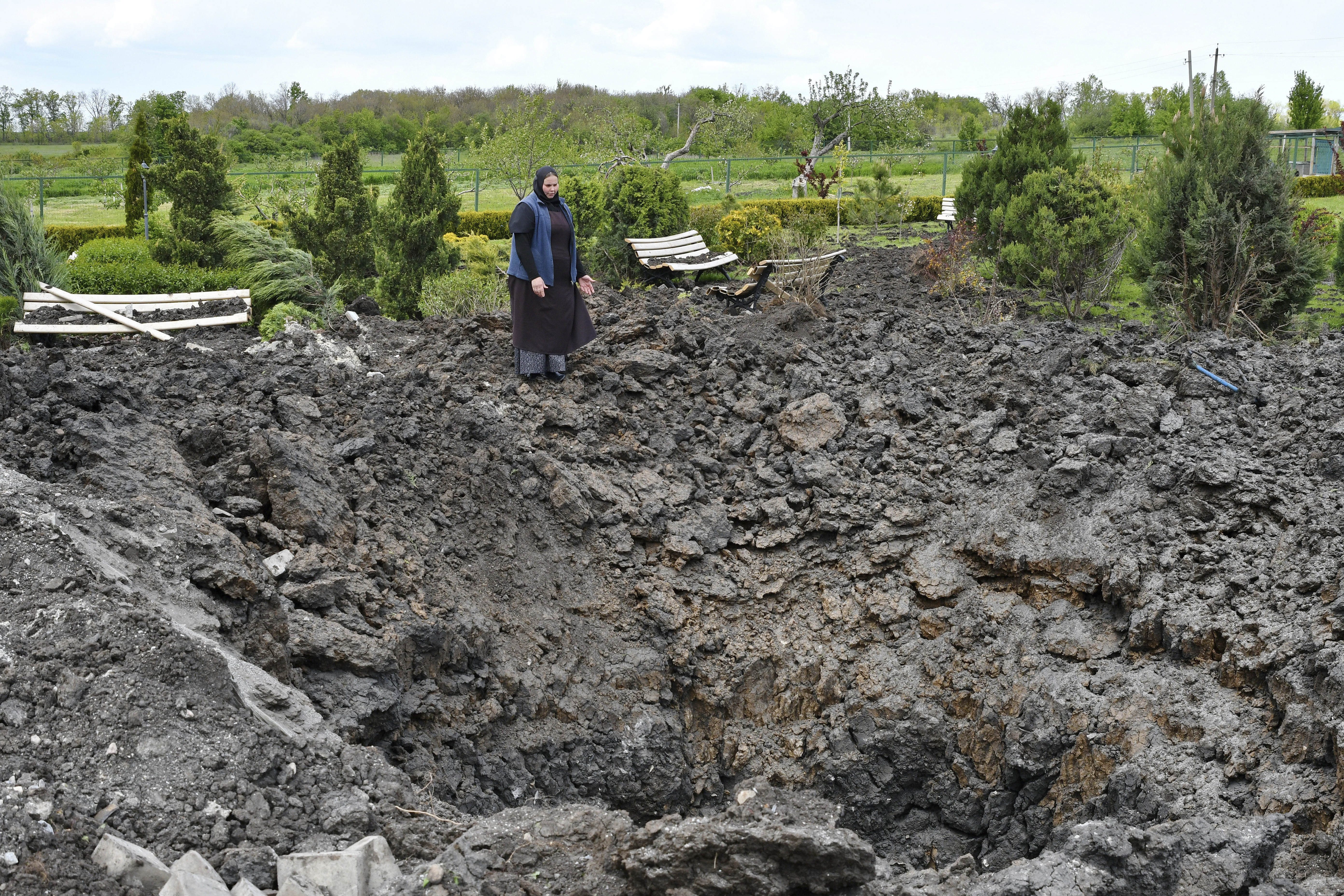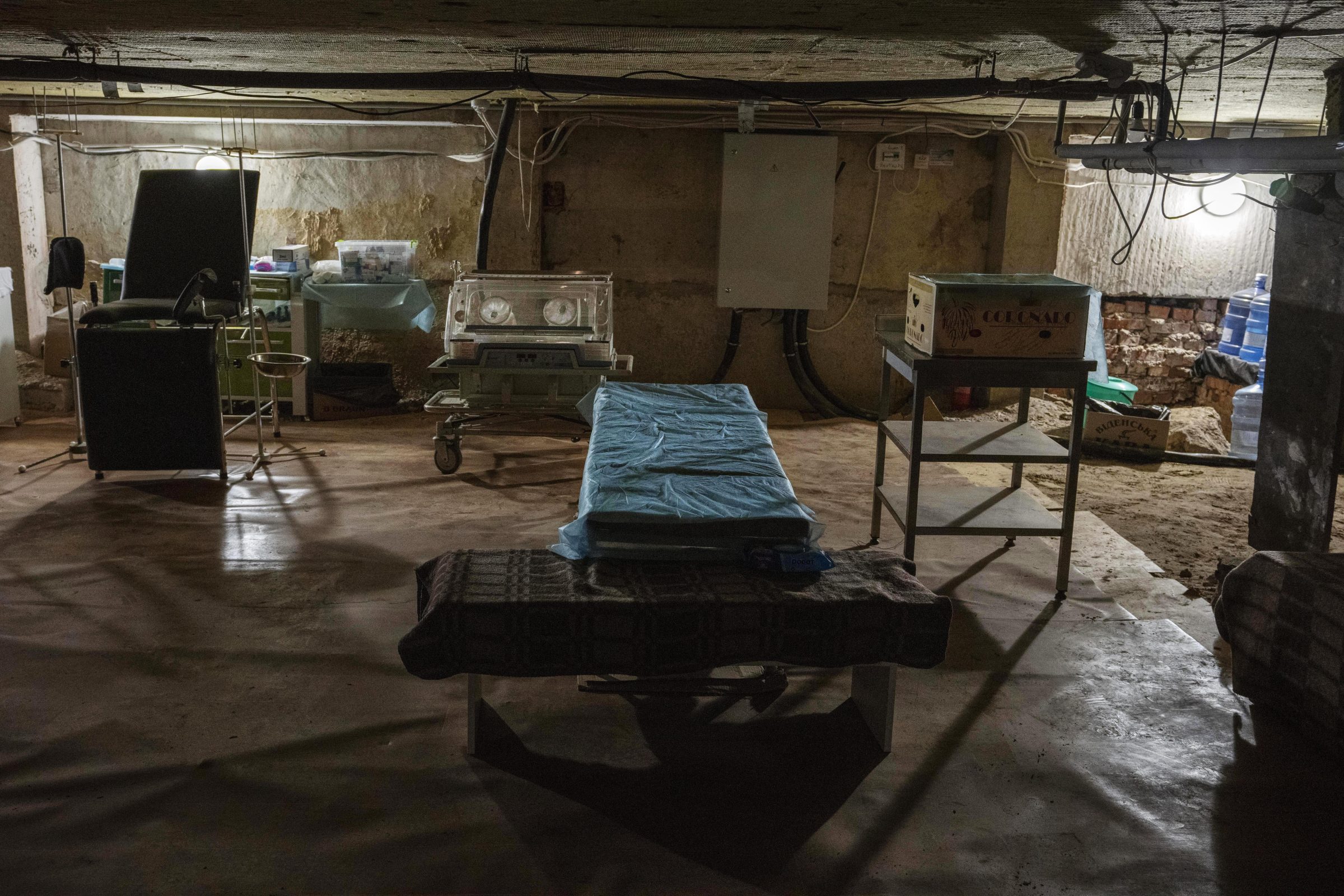
Russian forces were continuing their airstrikes on the Azovstal steel mill in Mariupol and pressing their advance on towns in eastern Ukraine, the general staff of Ukraine’s armed forces said Thursday.
The bombardment came as Ukraine offered to release Russian prisoners of war in exchange for the safe evacuation of the badly injured fighters that remained trapped inside the mill in the ruined city.
Ukrainian Deputy Prime Minister Iryna Vereshchuk said that negotiations were underway to release the injured fighters who are holed up in the last bastion of Ukrainian resistance in Mariupol. She said there were different options, but “none of them is ideal.”
An adviser to the Mariupol mayor said Russian forces have blocked all evacuation routes out of the city. Petro Andriushchenko said there are few apartment buildings fit to live in and little food or drinking water. He said some remaining residents are cooperating with occupying Russian forces in exchange for food.
We've got the news you need to know to start your day. Sign up for the First & 4Most morning newsletter — delivered to your inbox daily. >Sign up here.
Elsewhere, Kyiv was preparing for its first war crimes trial of a captured Russian soldier, who is alleged to have gunned down an unarmed civilian riding a bicycle.
In its operational statement for Day 78 of the war, the Ukrainian military said Russian forces also fired artillery and grenade launchers at Ukrainian troops in the direction of Zaporizhzhia, which has been a refuge for civilians fleeing Mariupol.
The military said Russian forces had fired artillery at Ukrainian units north of the city of Kharkiv in northeast Ukraine, and reported Russian strikes in the Chernihiv and Sumy regions to the north.
More Russia-Ukraine Coverage
Across the Donetsk and Luhansk regions of eastern Ukraine, the site of sustained fighting since the war began, the Ukrainian general staff noted “partial success” in Russia’s advance. It said Ukrainian forces repulsed nine attacks by Russian forces and destroyed several drones and military vehicles. The information could not be independently verified.
Ukraine's top prosecutor said her office charged Russian Sgt. Vadin Shyshimarin, 21, in the killing of an unarmed 62-year-old civilian who was gunned down while riding a bicycle in February, four days into the war. Shyshimarin, who served with a tank unit, was accused of firing through a car window on the man in the northeastern village of Chupakhivka.
Prosecutor General Iryna Venediktova said the soldier could get up to 15 years in prison. She did not say when his trial would start. Venediktova’s office has said it has been investigating more than 10,700 allegations of war crimes committed by Russian forces and has identified over 600 suspects.
Many of the atrocities came to light last month after Moscow's forces aborted their bid to capture Kyiv and withdrew from around the capital, exposing mass graves and streets and yards strewn with bodies in towns such as Bucha. Residents told of killings, burnings, rape, torture and dismemberment.
Volodymyr Yavorskyy of the Center for Civil Liberties said the Ukrainian human rights group will be closely following Shyshimarin's trial to see if it is fair. “It’s very difficult to observe all the rules, norms and neutrality of the court proceedings in wartime,” he said.
On the economic front, Ukraine shut down a pipeline that carries Russian gas across Ukraine to homes and industries in Western Europe, marking the first time since the start of the war that Kyiv disrupted the westward flow of one of Moscow’s most lucrative exports.
The move was made, Ukraine's natural gas pipeline operator said, to stop Russian gas flowing through a station in part of eastern Ukraine controlled by Moscow-backed separatists because enemy forces were interfering with the station’s operation and siphoning gas.
The immediate effect is likely to be limited, in part because Russia can divert the gas to another pipeline and because Europe relies on a variety of suppliers. Still, the cutoff underscored the broader risk to gas supplies from the war.
In the southern Kherson region, the site of the first major Ukrainian city to fall in the war, a Moscow-appointed leader said officials there want Russian President Vladimir Putin to annex the area. Kirill Stremousov, deputy head of the Kherson regional administration appointed by Moscow, told Russia’s RIA Novosti news agency: “The city of Kherson is Russia.”
That was something at least one resident contested. “All people in Kherson are waiting for our troops to come as soon as possible,” said a teacher who gave only her first name, Olga, out of fear of retaliation. “Nobody wants to live in Russia or join Russia.”
The development raised the possibility that the Kremlin would seek to break off another piece of Ukraine as it tries to salvage an invasion gone awry. Russia annexed Ukraine's Crimean Peninsula, which borders the Kherson region, after a disputed referendum in 2014, a move denounced as illegal and rejected by most of the international community.
Inside Kherson, people have taken to the streets to decry the Russian occupation. Olga, the teacher, said such protests are impossible now because Moscow’s troops “kidnapped activists and citizens simply for wearing Ukrainian colors or ribbons.” She said “people are scared of talking openly outside their homes” and “everyone walks on the street quickly.”
A Black Sea port of roughly 300,000, Kherson provides Crimea with access to fresh water and is seen as a gateway to wider Russian control over southern Ukraine.
Kremlin spokesman Dmitry Peskov said it would be up to residents in the region to decide whether an appeal to annex should be made. He said any move to annex territory would have to be closely evaluated by legal experts to make sure it is “absolutely legitimate, as it was with Crimea.”
Ukrainian presidential adviser Mykhailo Podolyak tweeted: “The invaders may ask to join even Mars or Jupiter. The Ukrainian army will liberate Kherson, no matter what games with words they play.”
Ukraine, meanwhile, was targeting Russian air defenses and resupply vessels on Snake Island in the Black Sea in an effort to disrupt Moscow’s efforts to expand its control over the coastline, according to the British Ministry of Defense.
Ukraine said it also shot down a cruise missile targeting the Black Sea port city of Odesa.
Evacuees from towns in the embattled east wiped away tears as they carried their children and belongings onto buses and vans to flee.
“It is terrible there now. We were leaving under missiles,” said Tatiana Kravstova, who left the town of Siversk with her 8-year-old son Artiom on a bus headed to the city of Dnipro. “I don’t know where they were aiming at, but they were pointing at civilians.”
Another evacuee, 15-year-old Dima Molchan, said: “You can overcome famine, you can overcome coldness but it is very difficult to overcome the war. After the war many children have no future, many elderly have no past. The war is frightening, it is a horror.”
Click here for complete coverage of the crisis in Ukraine.
Yesica Fisch in Bakhmut, David Keyton in Kyiv, Yuras Karmanau in Lviv, Mstyslav Chernov in Kharkiv, Kelvin Chan in London and AP's worldwide staff contributed.



